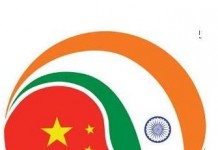MARKET PERSPECTIVE
GOI should keep its mind open and preconceptions closed
By J Mulraj — Saturday Oct 17, 2020
Along with several good initiatives taken by this Government, there are also a few bad ones, as a result of which we have not been able to grow our economy as much as its potential.
As per the Print, a recent study by IMF states that India’s GDP will decline by 10.5% this year, amongst the world’s largest declines. True, this is largely due to the economic ravages to a large country like India from Covid. But not entirely. We should study why other countries are doing less worse and whether any of our preconceptions need to be reviewed to achieve a faster growth.
One small country, Vietnam, has handled Covid well. It locked down, early, as India did. But then it tested much more than India and did thorough contact tracing. India also overlooked the issue of migratory labour which, on return to their homes, spread the virus.
The shocking revelation in the IMF study is that this year, if its predictions hold, India’s per capita GDP would be lower than that of Bangladesh! Five years ago, it was 40% higher! So we need to examine what we did wrong over 5 years and correct it, with an open mind.
India has been an economy short on capital, much needed for investment. After the ravage caused by Covid, GOI has taken steps to attract foreign direct investment (FDI), which brings with it both jobs and technology. Unlike Foreign Institutional Investment (FII), FDI is here to stay, whereas FII can flee at the click of a mouse. The steps include a reduction in corporate tax rate, from 30% to 22% for existing, and from 25% to 15% for new companies. It has also made changes in labour laws to make them more flexible, in order to attract FDI. The rapid technological changes happening necessitate such flexibility, with safeguards to compensate employees for closure.
Yes, lower corporate tax rates, comparable to other competing destinations and more flexible labour laws are FDI inducing. But there are other things which are not. Chief amongst the discouragements is the absence of protection for such FDI.
Such investments are protected by multiple Bilateral Investment Treaties, which have a clause allowing for international arbitration in case of disputes. This is because the Indian judicial system is painfully slow to resolve commercial disputes, something this column, like others, has been harping over. A mere limit to the number of adjournments each side can seek (one or two per case, as is the international norm) is so easy to do on paper, yet so inexplicably difficult in practise. Why not sit with the judiciary and implement it firmly, as a means to attract not only FDI but also to speedily settle domestic cases?
The travails of Daiichi Sankyo, which, in 2016, won in international arbitration against the Singh Brothers, and is still awaiting payment, is well known. NTTDoCoMo also went through a long wait before the Tata’s honoured the award. Now GOI has lost in international arbitration against Vodafone, for a capital gains tax to be paid by a seller of an asset, was sought (through a retrospective amendment) to be collected from the buyer. The GOI must decide if its preconception stands in the way of its attempt to encourage Ease of Doing Business.
Bangladesh’s catch up, from being 40% below per cap GDP to being equal to India, is largely a story of successful exports, and of FDI.
The FM announced a Rs 73,000 crore package to boost capex and to stimulate consumer demand. It will release advance money to Government employees ahead of festivals to boost demand, and will provide states with a 50 year, interest free, loan.
She could have considered a reduction of GST rates to boost demand much faster. These vary from 3% (for gold) to 28% in 5 slabs. Interestingly, the slab of 18% is higher than the corporate rate for new companies, of 15%, and the rate of 28% is higher than corporate tax for existing companies, of 25%. Since everyone pays GST, and far fewer corporate tax, the demand boost can best be accelerated through a GST tax cut rate. Being demand elastic, the GST tax collections through lower rates would be much more than the revenue lost through a rate cut, as was proven when income tax rates were reduced.
Keep mind open, and preconceptions closed.
One of the good Government initiatives is the launch of a rural property registry called SVAMITVA. Property cards will be issued, which ought to have been done eons ago. Today, the local official (tehsildar) can virtually mess with property rights by pencilling an entry, after being sufficiently induced, on the property extract. Seeking justice is unaffordable for the average Indian. Kudos to the Government.
Stockmarkets are rising due to the surge in liquidity injected to spur the economies destroyed by Covid. There is enough money and enough risk appetite. Ligado Networks, a wireless network provider for 5G IoT services, is offering bonds with a 17.5% coupon! The Chinese Government made a $ 6 b. issue of bonds in USA, of various tenures. It was heavily oversubscribed and its 10 year bond was priced at a yield of 0.5% over comparable US Treasury bonds.
India too must promote and develop its fixed income markets. These are larger than equity markets but are not being promoted. If Indian Government (for infrastructure), banks (for corporate lending) and companies (for capex) need funds, the global bond markets must be tapped.
The current concerns revolve around US elections and the inexplicable Chinese penchant for creating disputes with all countries. If these result in a good fall, it may be worth looking to enter.








































COMMENTS